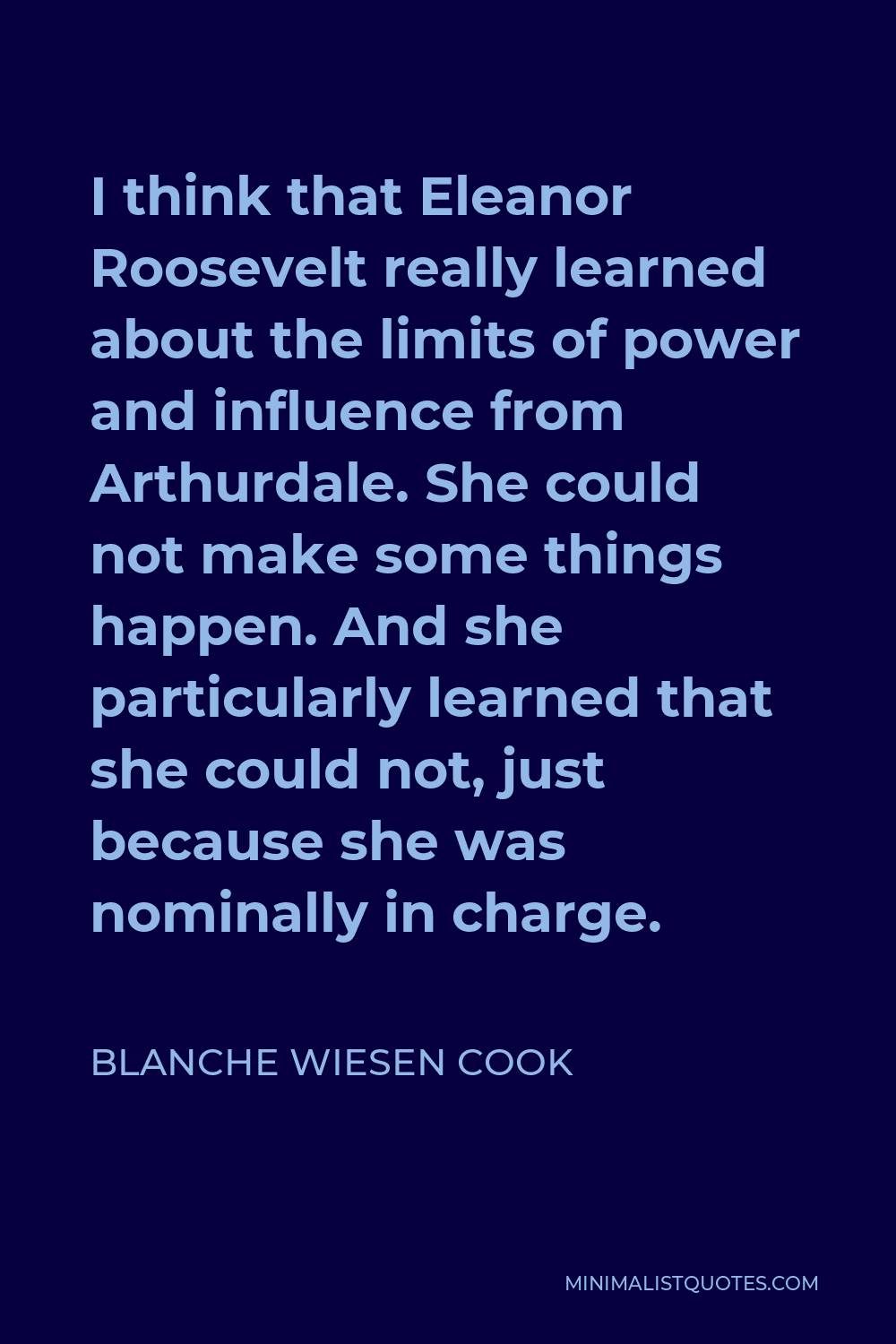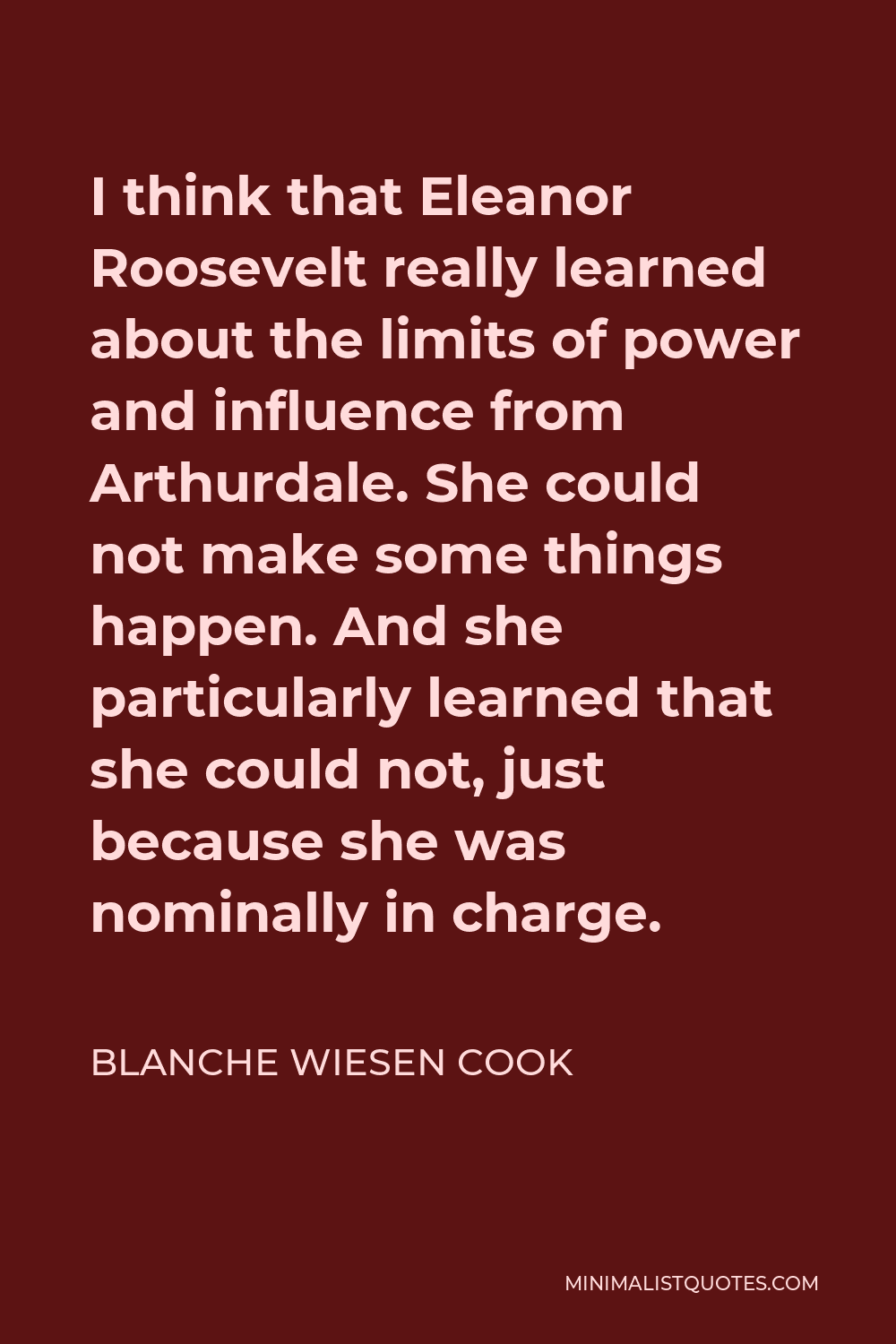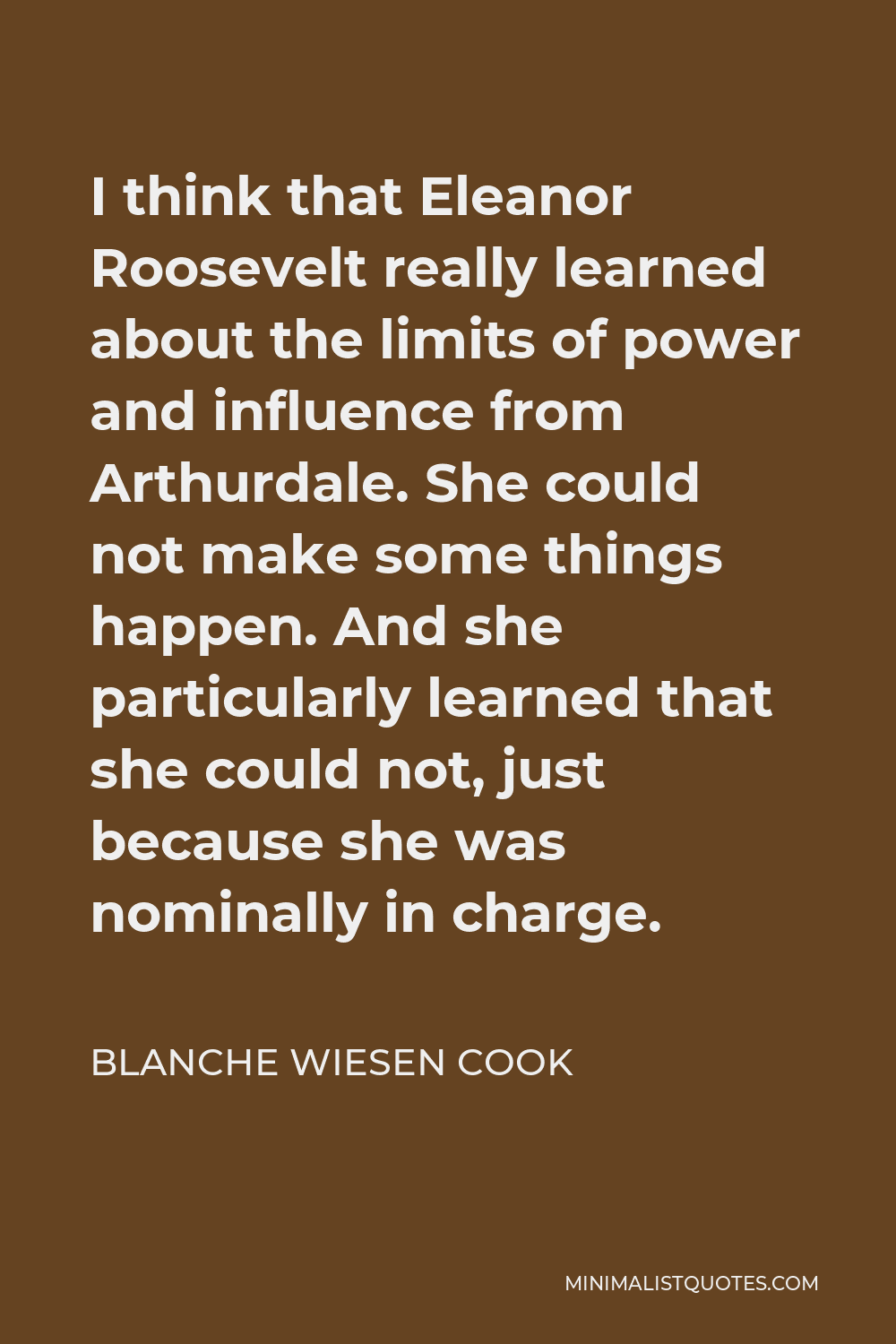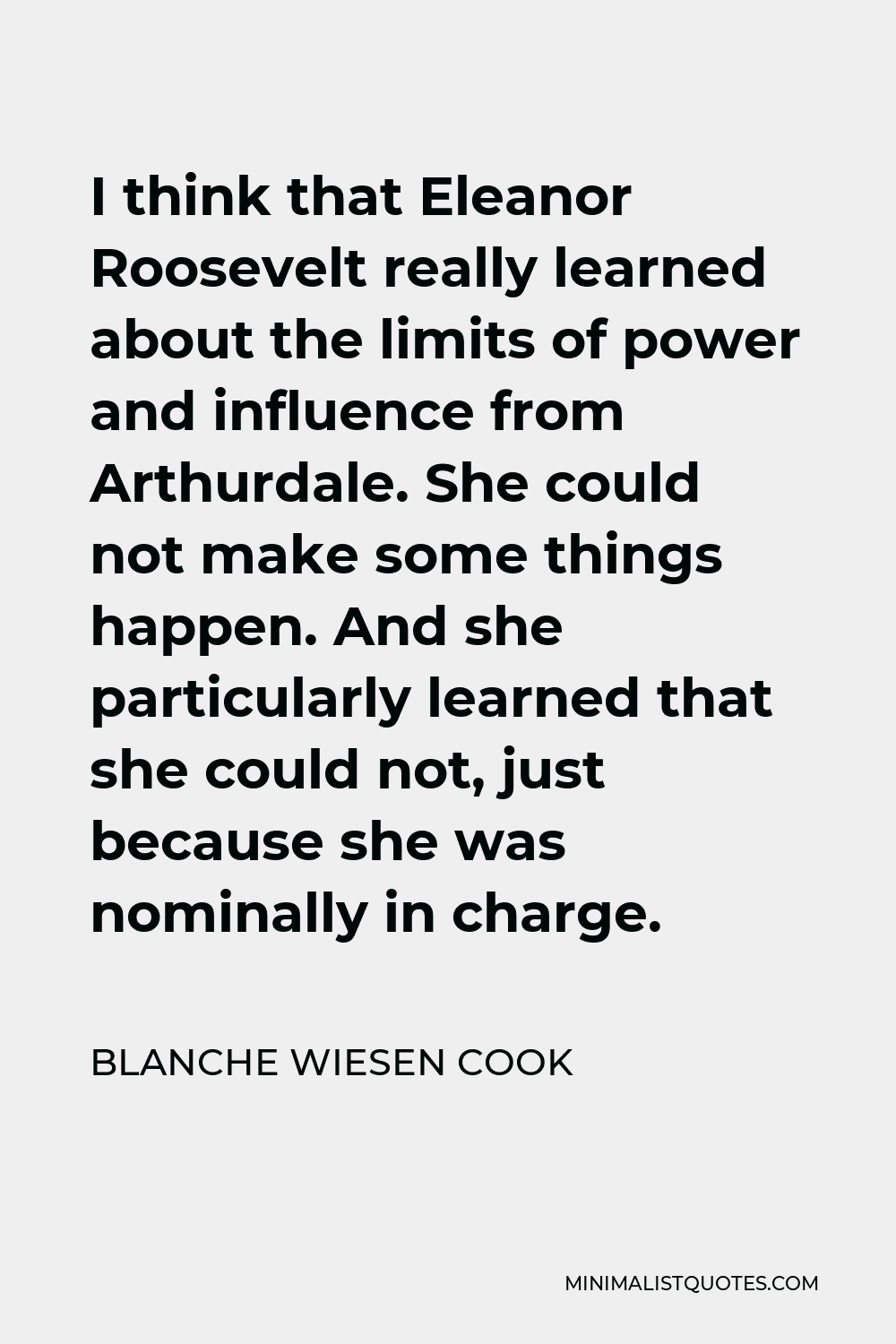The very first entry in her FBI file begins in 1924, when Eleanor Roosevelt supports American’s entrance into the World Court. And the World Court comes up again and again – ’33, ’35.
BLANCHE WIESEN COOKI think that Eleanor Roosevelt really learned about the limits of power and influence from Arthurdale. She could not make some things happen. And she particularly learned that she could not, just because she was nominally in charge.
More Blanche Wiesen Cook Quotes
-





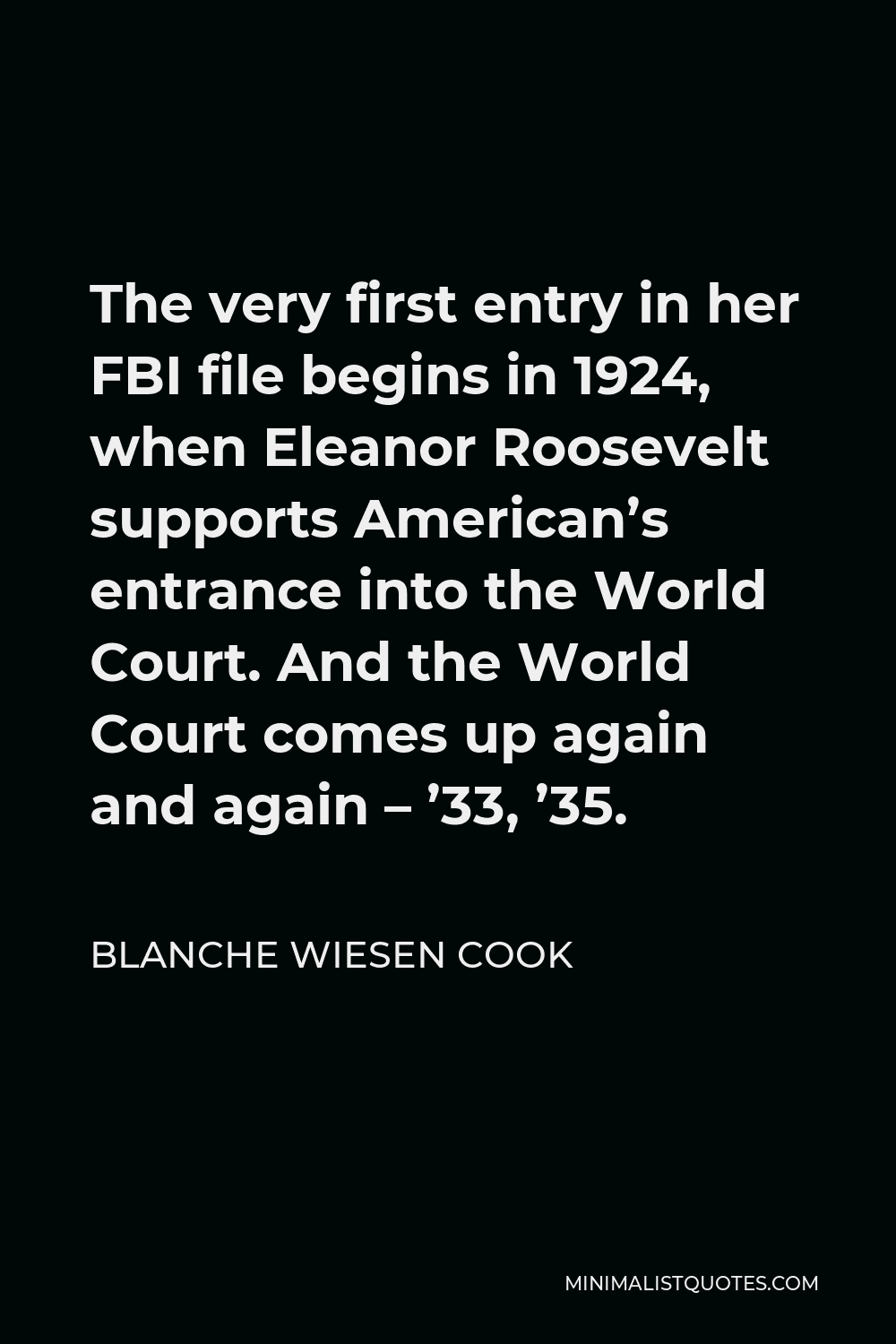
-





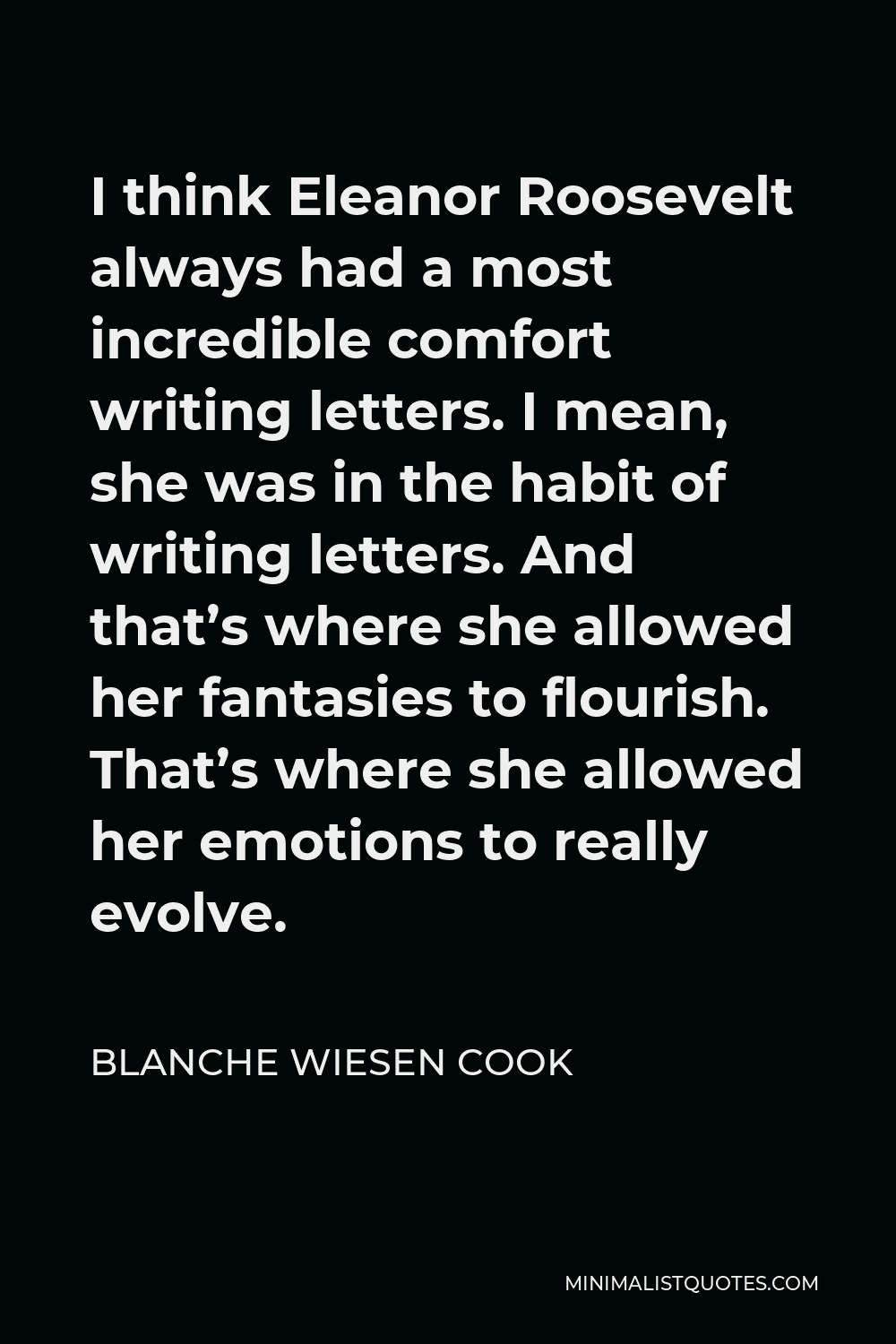
I think Eleanor Roosevelt always had a most incredible comfort writing letters. I mean, she was in the habit of writing letters. And that’s where she allowed her fantasies to flourish. That’s where she allowed her emotions to really evolve.
BLANCHE WIESEN COOK -





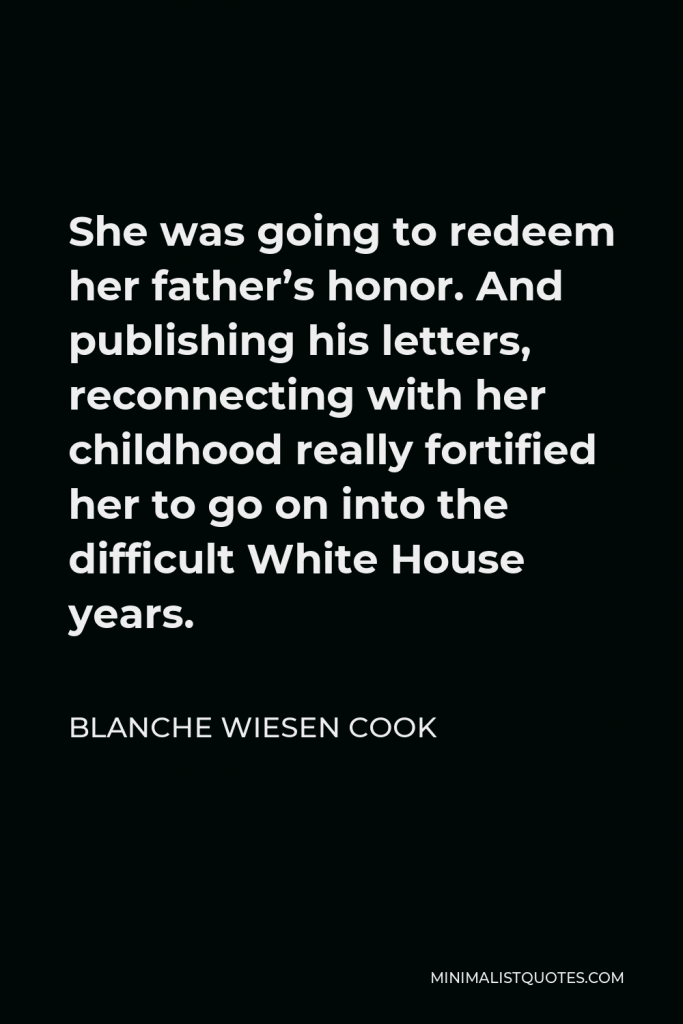

She was going to redeem her father’s honor. And publishing his letters, reconnecting with her childhood really fortified her to go on into the difficult White House years.
BLANCHE WIESEN COOK -





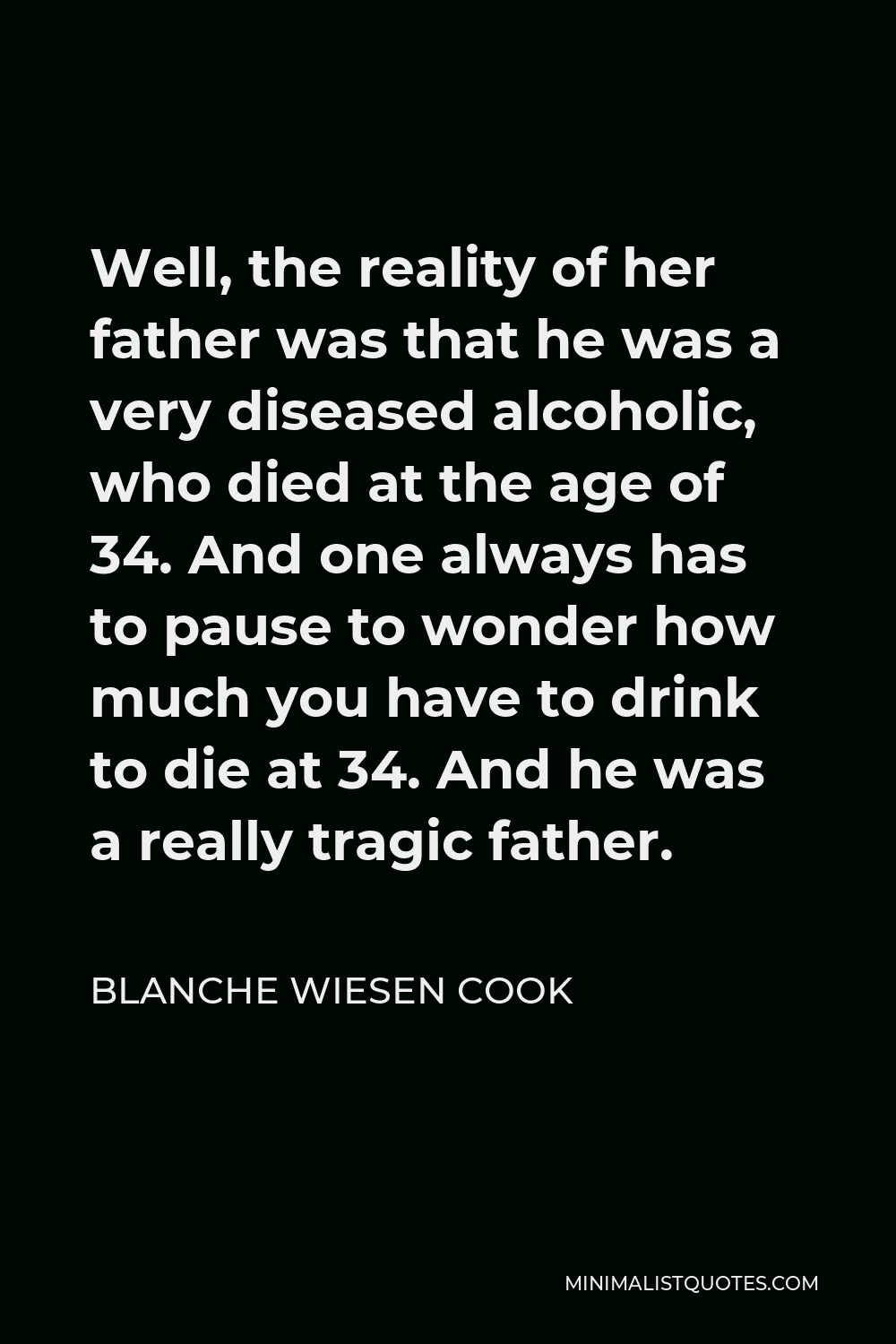
Well, the reality of her father was that he was a very diseased alcoholic, who died at the age of 34. And one always has to pause to wonder how much you have to drink to die at 34. And he was a really tragic father.
BLANCHE WIESEN COOK -





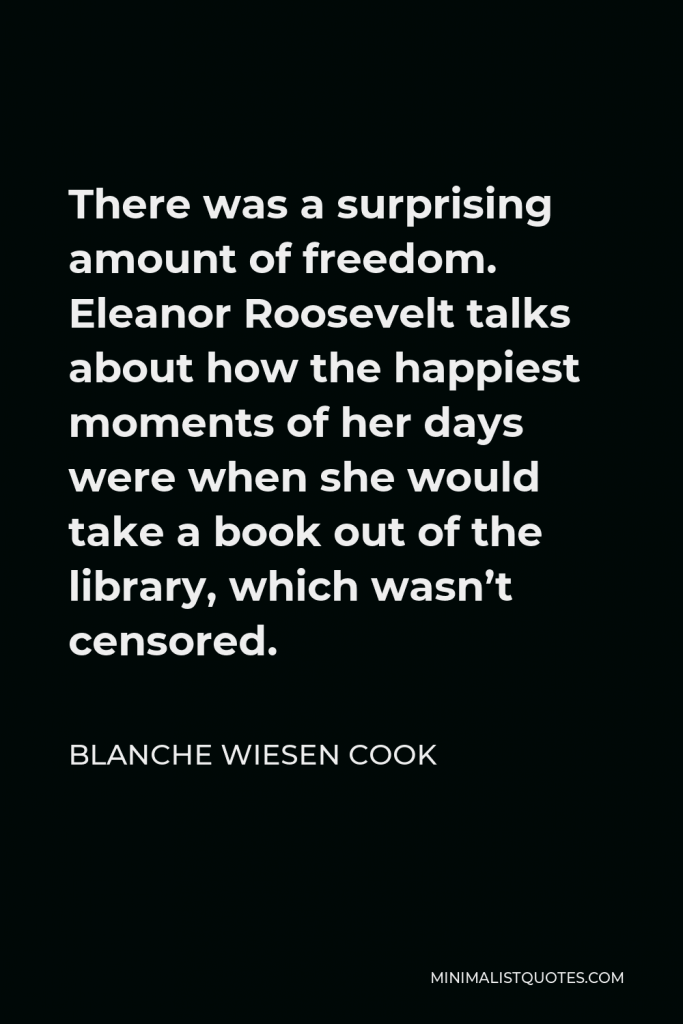

There was a surprising amount of freedom. Eleanor Roosevelt talks about how the happiest moments of her days were when she would take a book out of the library, which wasn’t censored.
BLANCHE WIESEN COOK -





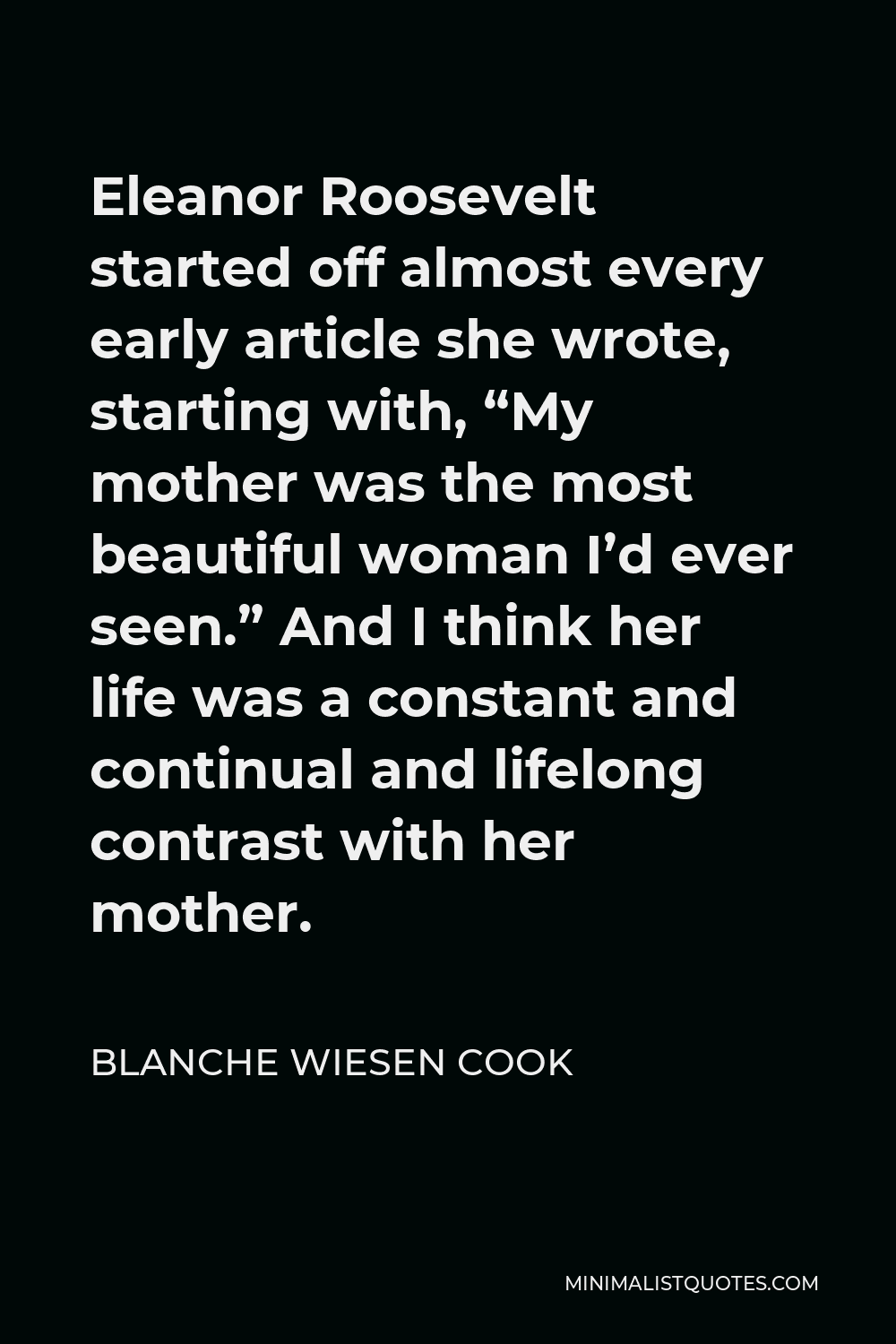
Eleanor Roosevelt started off almost every early article she wrote, starting with, “My mother was the most beautiful woman I’d ever seen.” And I think her life was a constant and continual and lifelong contrast with her mother.
BLANCHE WIESEN COOK -






I think FDR was very dashing and charming and debonair, and probably reminded her of her father. A great bon-vivant. He loved to party.
BLANCHE WIESEN COOK -





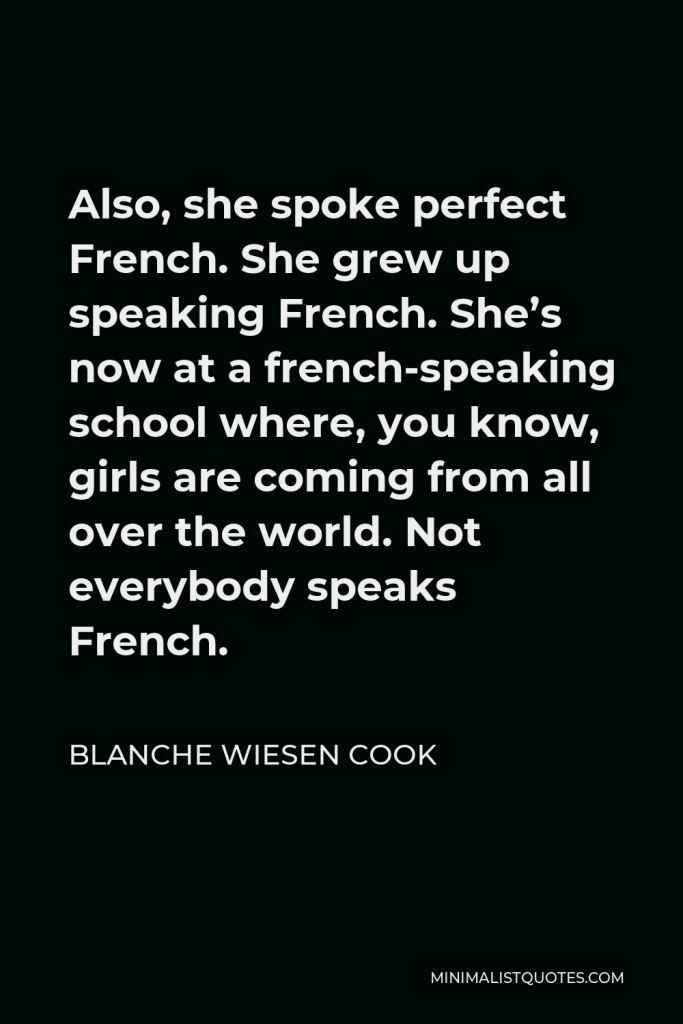

Also, she spoke perfect French. She grew up speaking French. She’s now at a french-speaking school where, you know, girls are coming from all over the world. Not everybody speaks French.
BLANCHE WIESEN COOK -





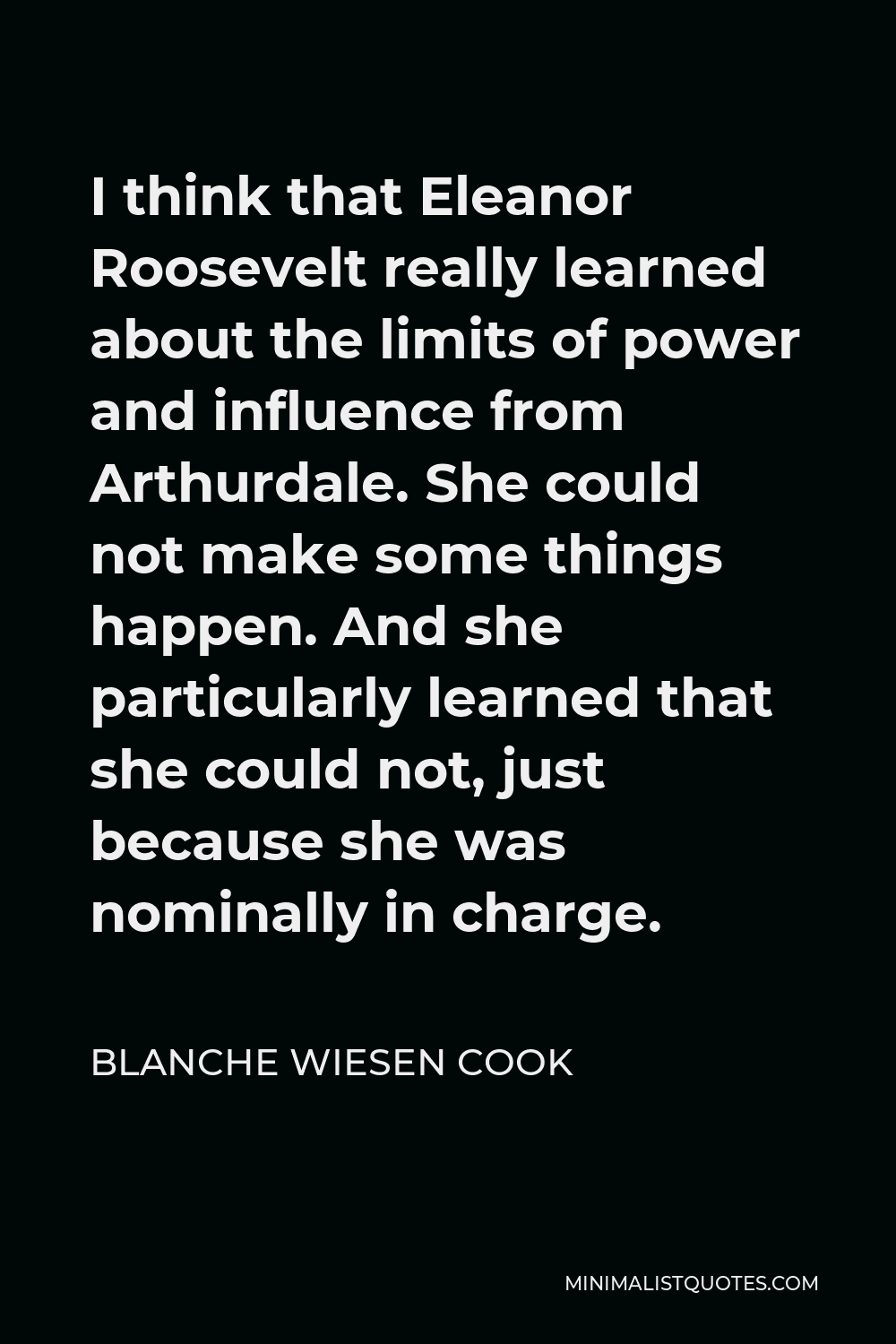
I think that Eleanor Roosevelt really learned about the limits of power and influence from Arthurdale. She could not make some things happen. And she particularly learned that she could not, just because she was nominally in charge.
BLANCHE WIESEN COOK -





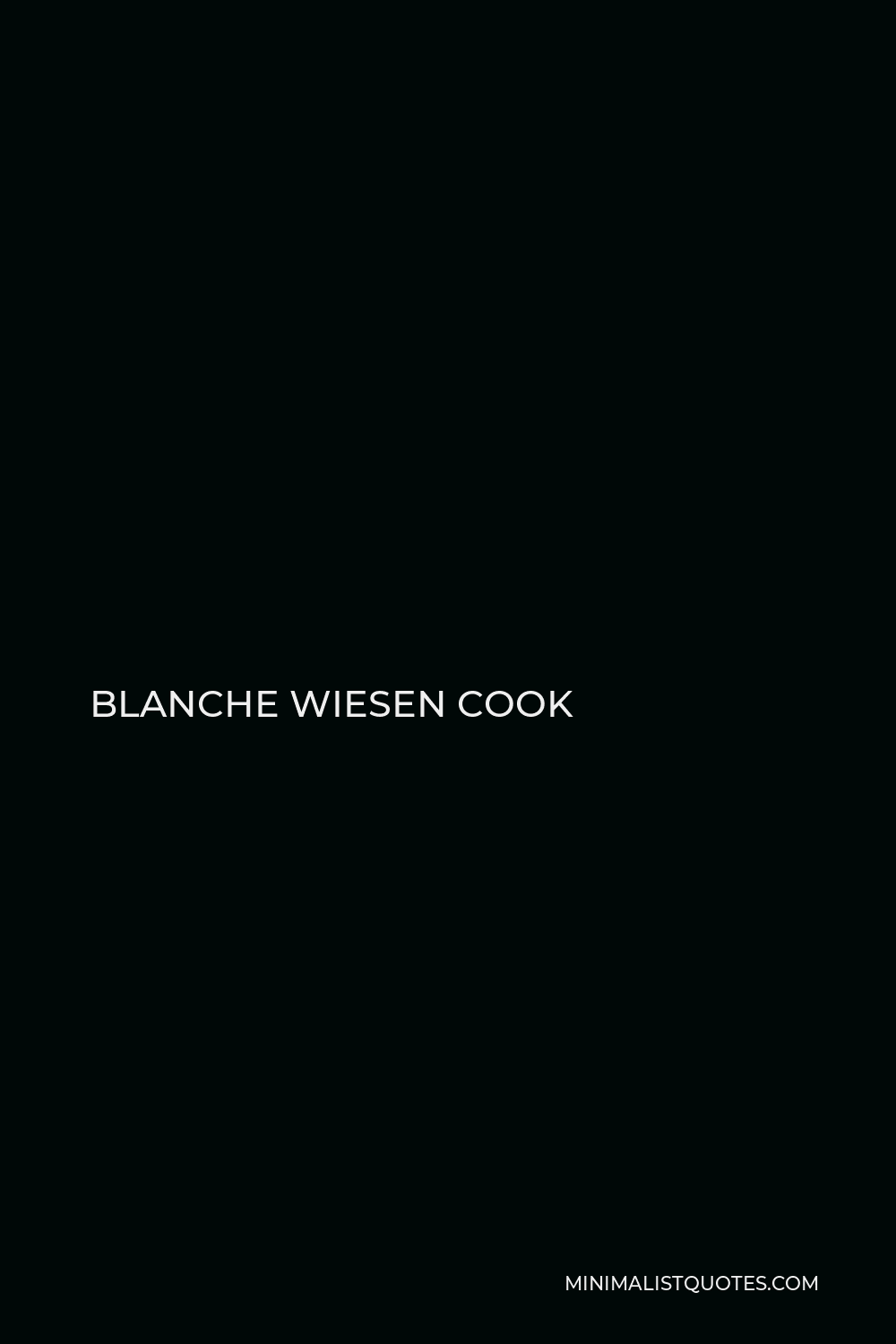
Eleanor Roosevelt doesn’t ever do anything that is going to hurt her husband. She tries things out on him. She gets permission to do things.
BLANCHE WIESEN COOK -





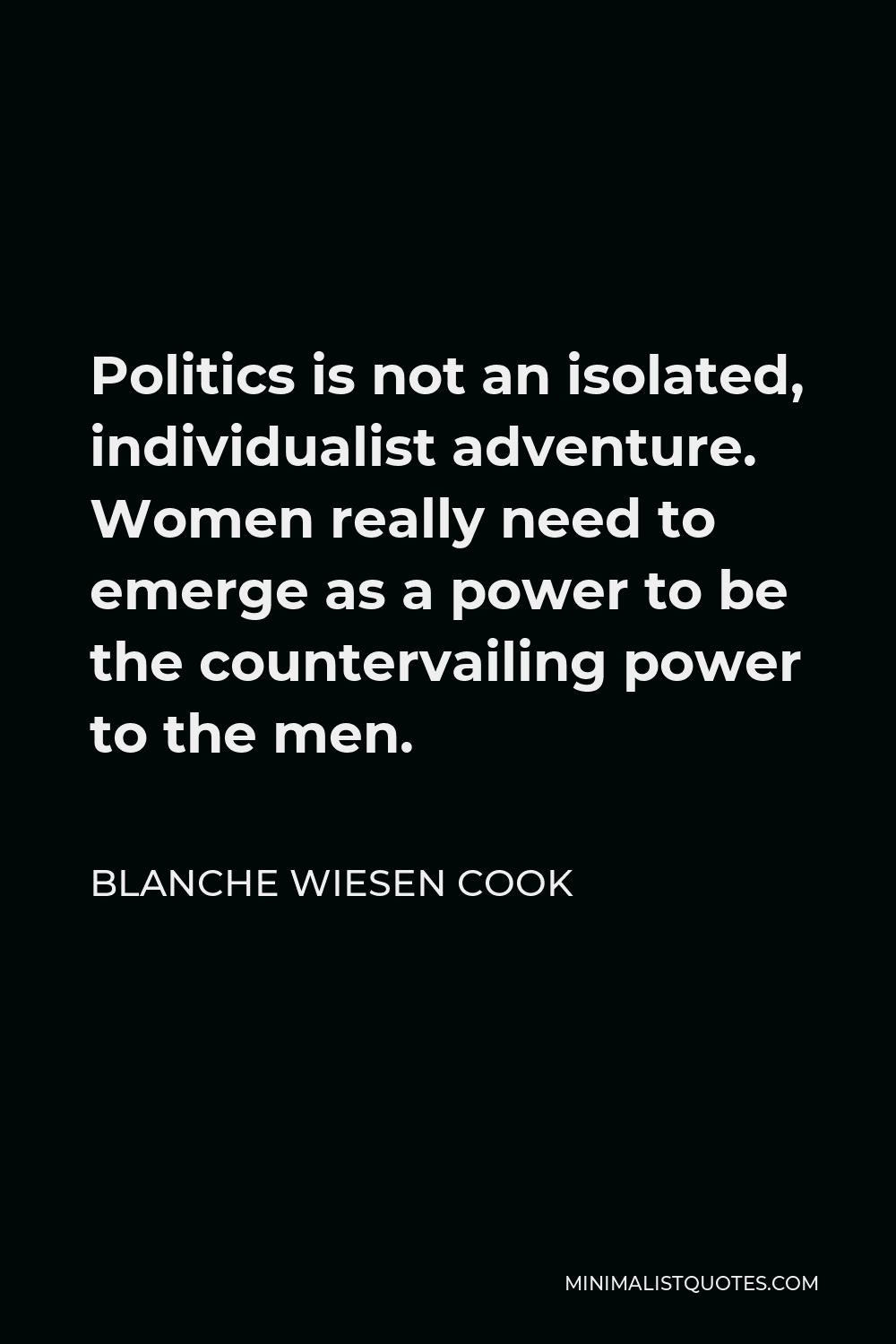
Politics is not an isolated, individualist adventure. Women really need to emerge as a power to be the countervailing power to the men.
BLANCHE WIESEN COOK -





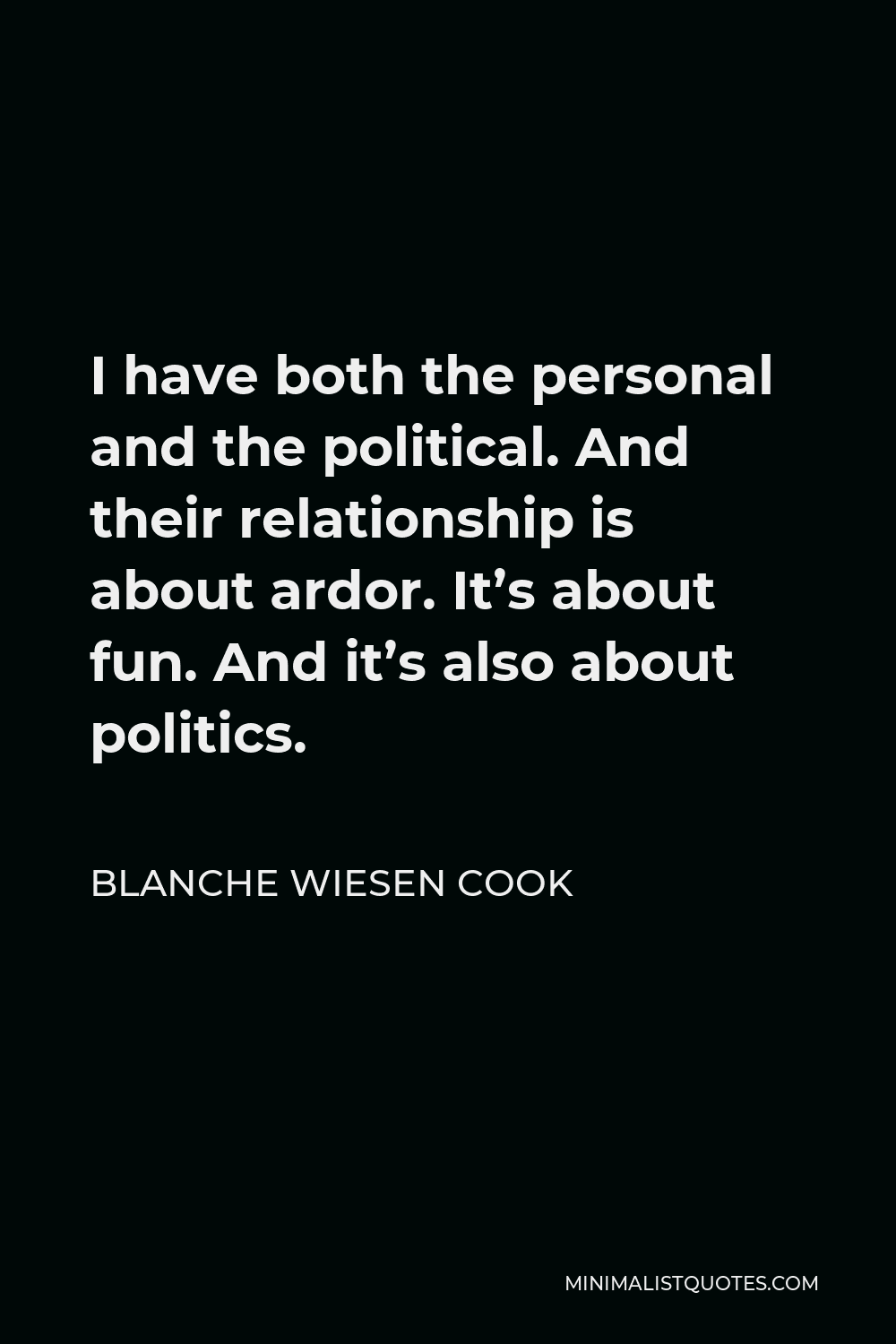
I have both the personal and the political. And their relationship is about ardor. It’s about fun. And it’s also about politics.
BLANCHE WIESEN COOK -





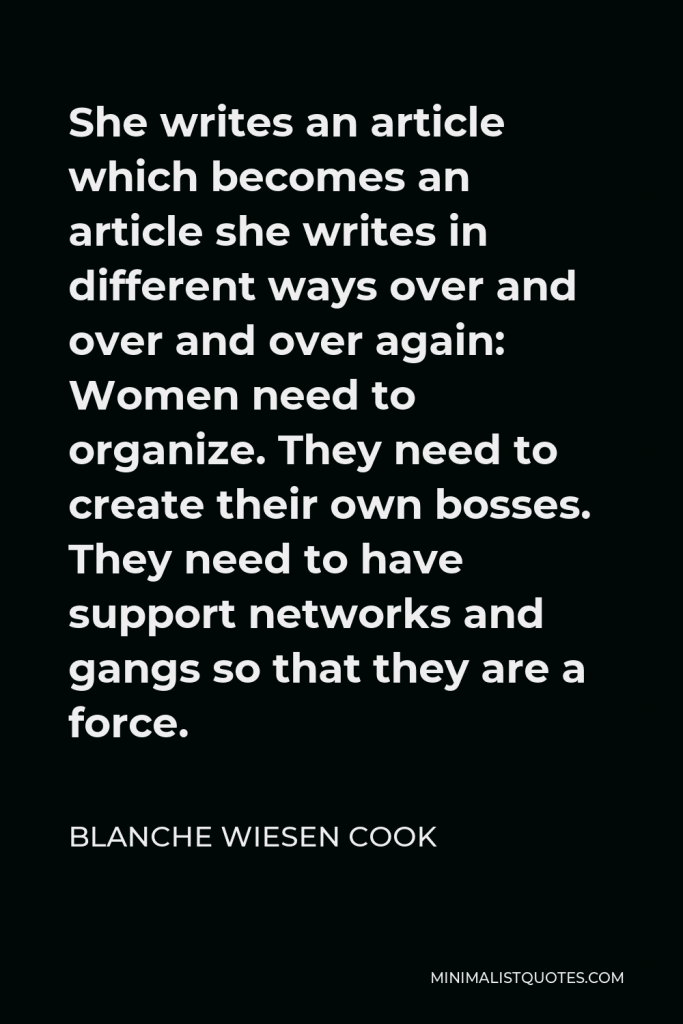

She writes an article which becomes an article she writes in different ways over and over and over again: Women need to organize. They need to create their own bosses. They need to have support networks and gangs so that they are a force.
BLANCHE WIESEN COOK -





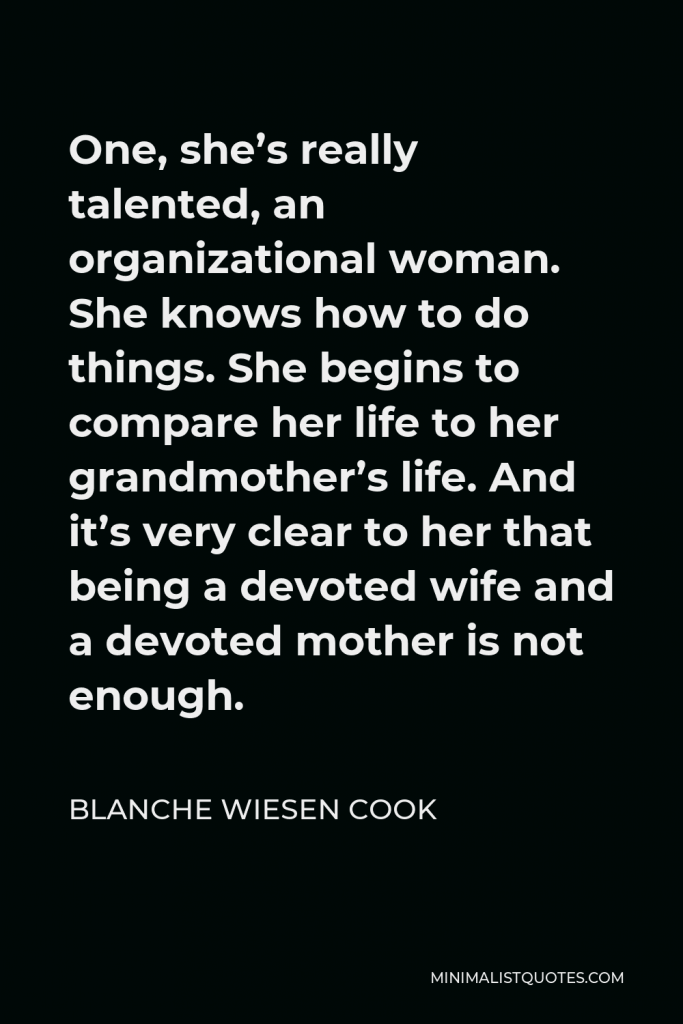

One, she’s really talented, an organizational woman. She knows how to do things. She begins to compare her life to her grandmother’s life. And it’s very clear to her that being a devoted wife and a devoted mother is not enough.
BLANCHE WIESEN COOK -





![Blanche Wiesen Cook Quote - So she [Eleanor Roosevelt] is an amazing First Lady. What other First Lady in U.S. history has ever written a book to criticize her husband’s policies?](https://minimalistquotes.com/wp-content/uploads/2023/03/so-she-eleanor-roosevelt-is-an-amazing-first-lady--683x1024.jpg)

So she [Eleanor Roosevelt] is an amazing First Lady. What other First Lady in U.S. history has ever written a book to criticize her husband’s policies?
BLANCHE WIESEN COOK -





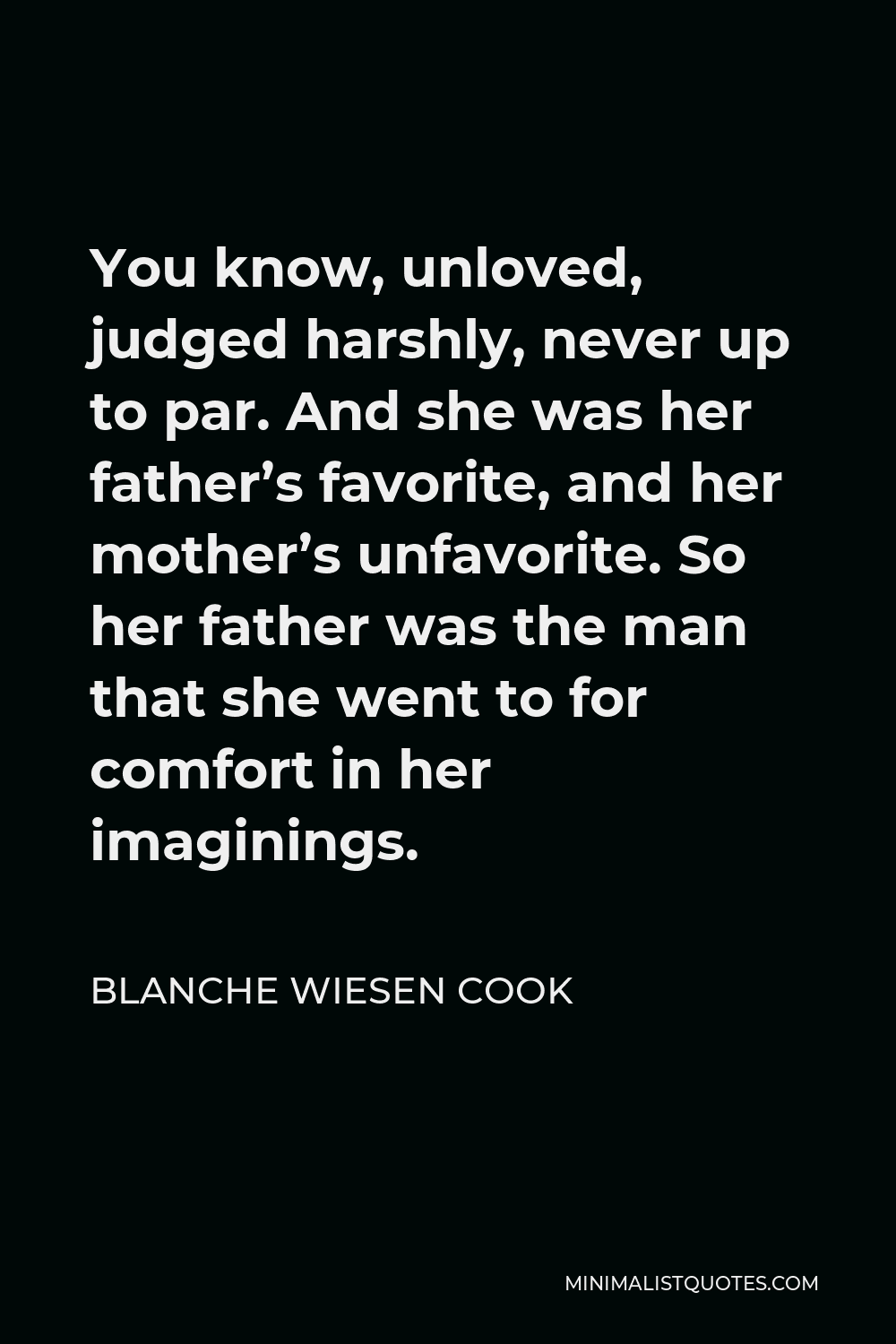
You know, unloved, judged harshly, never up to par. And she was her father’s favorite, and her mother’s unfavorite. So her father was the man that she went to for comfort in her imaginings.
BLANCHE WIESEN COOK

